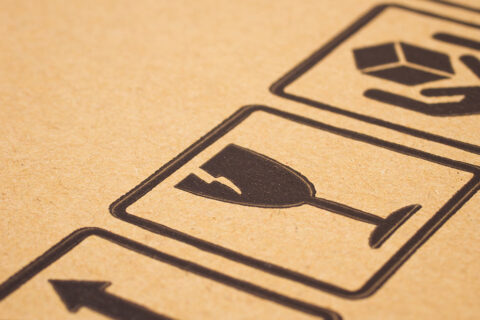Moving books is tough! They’re heavy, often fragile, vulnerable to water damage and tough to keep organized. You might own hundreds or even thousands of books. You might be able to appreciate how poetic your favorite habit becoming such an albatross during your new chapter in life would be… if you weren’t in such a bad mood. Luckily, moving books doesn’t have to be frustrating! In fact, packing and moving your collection efficiently and safely is easier than you think! All you have to do is follow a few of these helpful book-moving guidelines:
Go through your collection.
Moving is the ideal time to take a long, critical look at all the books you have. Culling your book collection means you’ll have fewer things to pack and move. Start this process a month or two before your move is scheduled. Go spine by spine, and look at each book you have. Ask yourself if you’ve read it, if you plan on reading it or if it has sentimental value to you. Be honest. You didn’t read Absalom, Absalom when it was assigned in college, and you probably won’t read it now.
If you can’t answer ‘yes’ to any of these questions about any particular book, it’s time for that book to go. Don’t leave it sitting around so you can go back on your choice, either. Instead, take the books you’re passing on to a used bookstore or one of many other places that take book donations. Seeing those books off may hurt a bit now, but your movers (and your back!) will thank you later. Plus, you’ll have more room to buy new books!
Go for small boxes.
One of the easiest mistakes to make when packing books is packing boxes too full. Books are heavy, and their bulk adds up quickly. Go for boxes that are smaller than 16″ by 12″ by 12″, even if those are the common measurements for small ones from hardware stores.
Repurpose smaller banana boxes, apple boxes, or old shipping boxes. If you have no choice but to use larger boxes, don’t fill them all the way full. You can fill them halfway with books and use the other half for clothing, linen, or other lighter items. You want to avoid the potential disaster for both you and your books that heavy boxes can cause. Spread out the weight of the books, even if it means packing more boxes.
Take the time to prep each box.
Heavy, overloaded boxes filled with books break more easily than others. If you need to pack boxes full of books, you’ll have to prepare them first. Cover all the seams on the box with a double layer of packing tape. When you tape the center flap on the bottom, make sure the tape runs at least halfway up the box on the sides.
Extra tape crisscrossed across the bottom of the box is never a bad idea. If you want to be especially cautious, cut additional pieces of cardboard to place inside the bottom of the box. This will add additional protection and weight disbursement.
Pay special attention to the way you pack both paperbacks and hardcovers.
There are certain techniques you can take when packing both paperbacks and hardcovers so they remain safe.
Tips for Hardcover Books
- Hardcover books should be placed upright, with their spines against the side of the box.
- You want to pack hardcovers tightly, but not so tightly that you won’t be able to get them out of the box.
- If you’re packing moderately valuable editions, wrap those in packing paper to protect their covers.
- If they’re especially valuable editions, use cardboard slotted between volumes to keep them from shifting during transport.
Tips for Paperback Books
- Paperbacks can be packed in multiple ways. You can stack them flat or spine first so that their paper edges face upwards. Don’t pack them so the edges of the pages face down or they’ll bend and warp. If you leave the boxes this way long term, they’ll be permanently damaged.
- Fill empty spaces with wadded-up paper to help limit any shifting in the box. You want to keep the books from falling onto their sides or bending.
Now that you know how to pack your books like an expert, you still have to worry about moving them. That’s where Bekins comes in. We’re a national moving company staffed by the best expert packers, movers and drivers in the industry.
Give us a call today to see how we can help you move your books to your new home.


